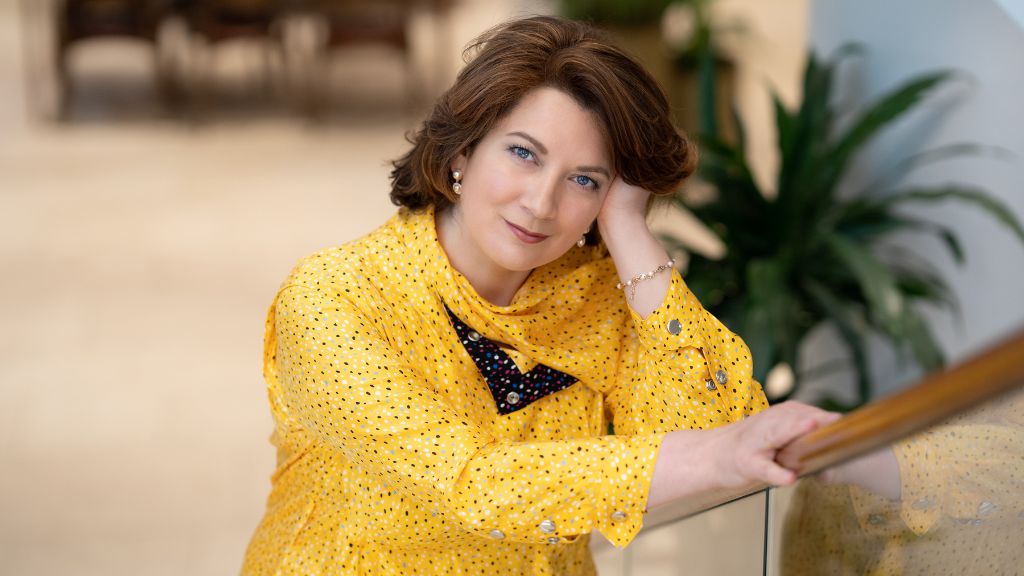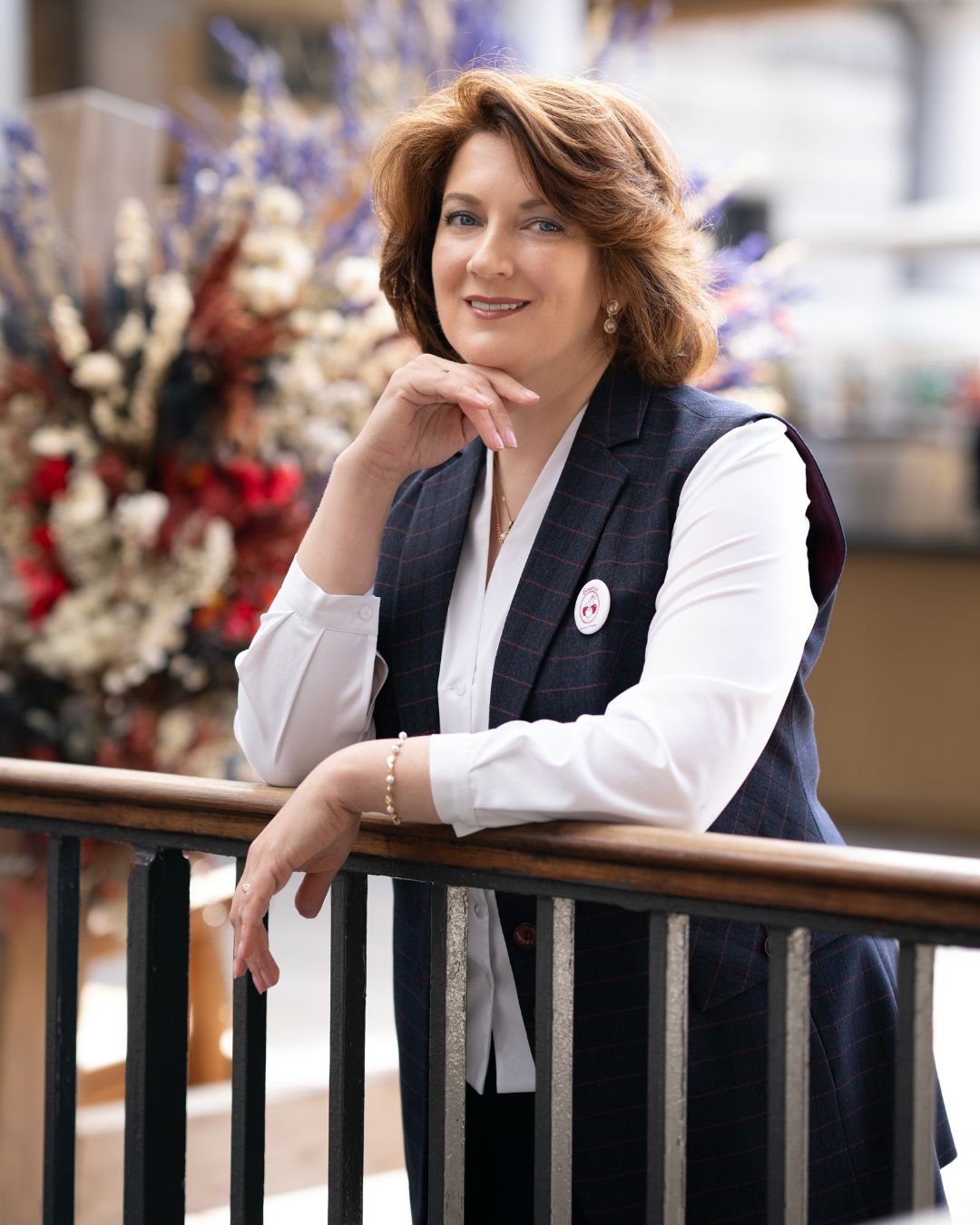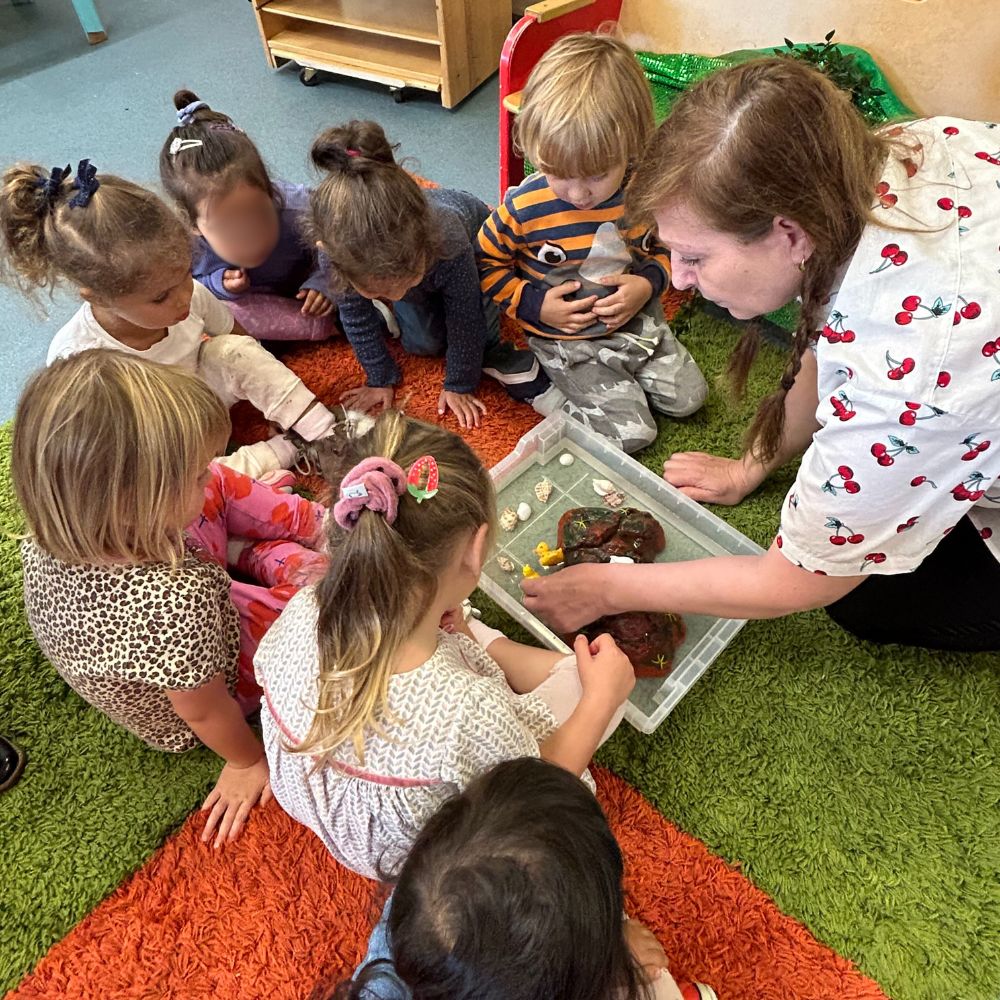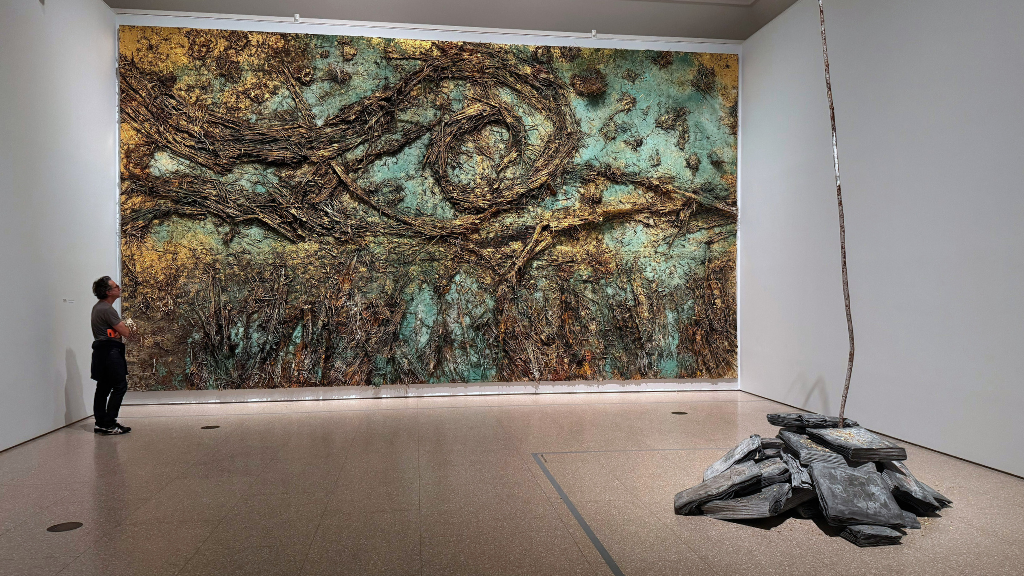
Nurturing Russian language skills: a look inside London’s Cherry Orchard School
Many Russian-speaking families face the inevitable question of how to transmit their mother tongue and cultural heritage to a child growing up in a foreign environment. They aspire for their children to take an interest in the language and culture organically, learning not through coercion but through playful engagement. This approach characterizes the ethos of the Russian school “Cherry Orchard” (Vishnyovyi Sad) in London, which has been nurturing for 13 years. Apart from offering Russian-language education for students, the school extends its reach to a distinctive nursery in London, hosts stimulating activities on weekends, weekdays evenings, and provides an enriching programme during school breaks. Afisha.London magazine interviewed Tatiana Henderson-Stewart, the director of the Russian school “Cherry Orchard”, delving into the intricacies of Russian-language education and exploring the significance of preserving language and culture amidst contemporary challenges.
— Tatiana, what inspired you to establish a school?
— I had been working at the French primary school La Petite Ecole Bilingue (LPEBL), and in 2011, parents approached me upon discovering my Russian-speaking background, requesting a Russian language elective for children. With a rising number of mixed marriages and families relocating due to job contracts or personal reasons, there was a growing demand for Russian language education. I proposed the idea to the school administration, and thus, our school “Cherry Orchard”, came into being.
Over time, I enlisted the help of professional Russian language teachers for children of all age groups. I posted advertisements in various London neighbourhoods, attracting more children, and gradually small groups began to form.
— What sets your school “Cherry Orchard”, apart? How do you distinguish yourselves from other schools in London?
— We endeavour to approach everything with a high degree of creativity. For instance, we organize celebrations four times a year, ensuring they are tailored specifically for children. Children prepare and perform on stage, but we incorporate an element of play to prevent them from feeling like they are simply working, aiming to alleviate any nervous tension associated with performing in front of an audience, especially in Russian! We strive to interweave theatrical scenes with games so that children remember the event fondly, recalling the delightful fairy-tale companions they had, thereby fostering a positive attitude towards learning.
Read also: The UK and beyond: film adaptations of Fyodor Dostoevsky’s books
Another characteristic of our approach is that we view children not merely as students (unless there are disciplinary issues), but rather, we engage with them on their level. We are not hesitant to kneel down when explaining something, teaching, or sharing jokes with them. We make an effort to immerse ourselves in their world and consider what we teach and how we teach it from the perspective of the child.

Photo: Russian school “Cherry Orchard” (Vishnyovyi Sad)
— Do you enrol children who have Russian heritage but do not speak the language at home, regarding it as a foreign language?
— Certainly, 10-15% of such children are always present in both the nursery and the classes, as well as in the Saturday school. This often occurs when parents wish for their child to learn Russian because, for example, the father studied the language at university and has a strong affinity for it. However, I believe that, for instance, the Saturday school alone may not suffice for them. Over time, children lose interest without the ability to develop their speech skills, so I often recommend that parents also hire Russian-speaking nannies or household assistants to provide additional practical language practice.
— During the enrolment process, do you assess the Russian language skills of the children to place them in groups according to their proficiency level and to ensure that those with stronger Russian skills are adequately challenged?
— We do conduct assessments, but they are quite lenient. For instance, children typically join our Saturday school at the age of two or three, when their Russian language skills are just beginning to develop, so the levels are generally similar. From my experience, I’ve found that children tend to be more engaged when they are with peers of similar abilities — that’s the key. Additionally, we have an assistant in the classes who provides support to children who may struggle with speaking or comprehension. There have been instances where we’ve moved a child to a higher class because they were progressing quickly through the curriculum and felt comfortable with older children — it’s all tailored to each individual child’s needs.

Photo: Russian school “Cherry Orchard” (Vishnyovyi Sad)
— Could you describe a typical day for a child at your school?
— At “Cherry Orchard” School, the core activities include Russian language sessions (covering grammar, etc.), literature classes focusing on vocabulary expansion, as well as music, dance, drawing, drama, and chess, all starting early in the morning. We don’t have extended breaks; instead, we transition between activities. For example, after the Russian language session, children move on to singing, then literature, followed by dance and drawing.
Additionally, we offer supplementary classes such as mathematics with an emphasis on logical puzzles and games, debates, and imagination lessons conducted by a psychologist. However, these are elective activities chosen by parents, and we provide them if there is sufficient interest.
- Photo: Russian school “Cherry Orchard” (Vishnyovyi Sad)
- Photo: Russian school “Cherry Orchard” (Vishnyovyi Sad)
— What’s the purpose of attending weekend school? Wouldn’t hiring a Russian tutor be more effective?
— Saturday school serves as a hub for friendships. Children can easily become disengaged spending hours in front of computer screens; here, they immerse themselves in a vibrant language environment, observing how others communicate and making comparisons. While tutors may offer excellent instruction, they lack the sense of community that our school provides.
Read also: Yuri Gagarin in London: how to impress the Queen and become a British hero
Fostering a Russian-speaking community is crucial. Although children may converse in English among themselves, for many, it’s their predominant language. However, if they find themselves surrounded by English speakers, they can share secrets in Russian. Through attending Russian school, children develop a deeper understanding of their identity as Russian speakers—it’s ingrained in them from birth.
— Do you assign grades?
— We refrain from using traditional grading systems; instead, we provide feedback using phrases like “well done” and offer constructive criticism where needed. If a student’s work falls short, we guide them by highlighting areas for improvement and encouraging them to revise and refine their work. We maintain open communication with parents through regular meetings to discuss their child’s progress.

Photo: Russian school “Cherry Orchard” (Vishnyovyi Sad)
— Do you prepare students for the GCSE exam?
— Yes, we do offer preparation, tailored to each student, and often conducted online. However, our school is currently not registered as an official exam preparation centre. Many of our students’ schools permit them to sit exams on their premises provided we oversee their preparation.
Exams are administered at designated centres, and it’s advisable to commence preparation a year in advance, allowing the child to mature academically. We assist students by providing guidance on effective study habits, completing homework assignments, and fostering effective communication skills.
— What strategies do you suggest families employ to prepare for the Russian language exam?
— I recommend engaging in frequent Russian reading sessions with your children, taking turns reading aloud: a page for me, a page for you. Encourage discussions about shared information and short online articles. Additionally, ensure your child has a solid grasp of fifth-grade grammar according to Russian school standards. Incorrect endings, conjugations, and declensions pose significant challenges.
- Photo: Russian school “Cherry Orchard” (Vishnyovyi Sad)
- Tatiana Henderson-Stewart Photo: Personal archive
— Is it challenging to recruit teachers for the Russian school in London? I imagine the market isn’t particularly large?
— We manage to find specialists for Saturday, evening, and Sunday schools. Our priority lies in hiring individuals who possess friendliness, a teaching diploma, relevant work experience, subject expertise, and a comprehensive understanding of the English education system. An intermediate level of English proficiency is also essential.
Recruiting staff for the nursery proves more difficult. While a candidate from the post-Soviet region may hold a first-category teaching qualification, they may not meet British standards for teacher certification. Alternatively, they might possess extensive pedagogical knowledge but lack the English proficiency required to complete qualification courses and attain teacher status locally. Not all candidates are willing to undergo this process, which involves preparing essays and passing exams.
All our teachers boast a pedagogical background; while they may engage in other projects or work as tutors in London, they eagerly return to our school for Saturday classes, as they miss the school environment.
— Could you provide more details about your full-fledged nursery, “Vishenka” (The Little Cherry)?
— Certainly, “Vishenka” nursery has been operational for eight years now. We welcome children aged one and a half to four years old. We categorize them by age to address their diverse developmental needs across physical, emotional, linguistic, and communication domains.

Photo: Russian school “Cherry Orchard” (Vishnyovyi Sad)
— What’s the daily schedule like at the nursery? Do the children have designated nap times?
— Parents can drop off their children at nine in the morning, with the option to start as early as eight. We commence the day with morning exercises, followed by various activities. Each week, we focus on a specific theme, such as transportation, incorporating related crafts and poetry. Nutritious meals are provided, and children have nap time after lunch. Pickup typically occurs around four, with extended care available until five.
— How are the holiday camps organized during school breaks?
— Holiday camps are usually held in autumn, February, April, or May, with two sessions scheduled for July. Additionally, we can arrange shorter camps lasting three days before Christmas or in May, depending on school holiday schedules. Each session accommodates around 30 children, with the primary objective being speech development.
- Photo: Russian school “Cherry Orchard” (Vishnyovyi Sad)
- Photo: Russian school “Cherry Orchard” (Vishnyovyi Sad)
During camp, we embark on imaginative journeys to distant planets and Wonderland, exploring various themes to enhance speech skills. This exposure builds vocabulary beyond what children typically encounter at home, fostering conversational abilities within a language-rich environment. Furthermore, camps aim to impart Slavic traditions through playful activities, such as humorous anecdotes and tales featuring characters like Baba Yaga. Our approach ensures that traditions are conveyed in an engaging manner, fostering cultural appreciation among the children.
For my team of educators, the camp serves as a vibrant festival. We design new programs cantered around specific themes, creating an immersive experience for the children. Parents often prioritize their child’s ability to read and write in Russian, which hinges on their proficiency in speaking and understanding the language. By engaging in meaningful play and language activities, the camp facilitates strong language immersion and skill development.
Read also: A British Perspective on Russian Classics: James Lance as “Uncle Vanya”
— Are there any methods to maintain language authenticity, particularly in terms of reducing accents?
— Certainly, we implement linguistic exercises with children up to the age of six. However, beyond this age, it becomes more challenging as the auditory apparatus is believed to fully develop by the age of seven, making accent correction considerably more difficult. While we endeavour to promote proper pronunciation, older children often exhibit resistance to this.

Tatiana Henderson-Stewart Photo: Personal archive
— In your opinion, why is it crucial to preserve the Russian language and uphold cultural connections, particularly in such tumultuous times, especially over the past two years?
— It’s imperative not to overlook the rich cultural heritage encompassing figures like Pushkin, Tchaikovsky, and beloved fairy tales such as “The Little Red Hen.” I firmly believe that the more cultural heritage a child inherits, the better equipped they are for life. It becomes part of their identity, providing them with an additional language and a wealth of knowledge. By imparting cultural traditions, children can draw parallels between, for instance, English folklore and the tales of Baba Yaga. Through activities like tea parties featuring gingerbread cookies and bagels or preparing traditional dishes like pancakes and cheesecakes, we immerse children in Slavic history.
For further information about the Russian school “Cherry Orchard”, the nursery “Vishenka,” and our camps, please visit our website. There, you’ll also find updates on group enrolments and upcoming events.
Cover photo: Personal archive of Tatiana Henderson-Stewart
Read also:
Leo Tolstoy in London: shaping the british literary landscape
Felix Yusupov and Princess Irina of Russia: love, riches and emigration
The legendary Russian children’s poet Korney Chukovsky in London
SUBSCRIBE
Receive our digest once a week with quality Russian events and articles
















